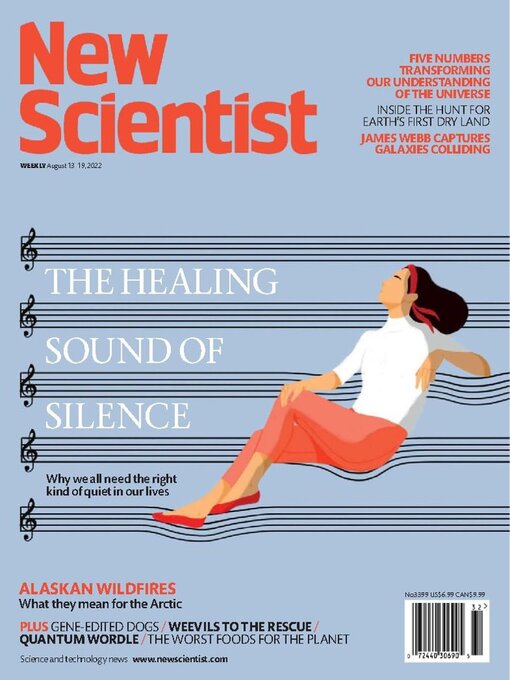New Scientist covers the latest developments in science and technology that will impact your world. New Scientist employs and commissions the best writers in their fields from all over the world. Our editorial team provide cutting-edge news, award-winning features and reports, written in concise and clear language that puts discoveries and advances in the context of everyday life today and in the future.
Elsewhere on New Scientist
Running dry • Even rainy nations like the UK must act now to protect against future droughts
New Scientist
US steps up climate action • The US Senate has passed the Inflation Reduction Act, featuring the largest climate package in US history, reports James Dinneen
Ancient bronze recipe deciphered • Mystery ingredients mentioned in an ancient Chinese text were probably pre-made alloys
Artificial neuron swaps dopamine with rat brain cells
Long covid struck 1 in 8 adults who got infected
Other coronaviruses shape covid-19 response
How cryptocurrencies get hacked • Digital currencies are designed to be “unhackable”, but that doesn’t mean funds are safe from criminals, says Matthew Sparkes
Young mice age when given blood from older animals
Dog disease mutation edited out • CRISPR editing could prevent a common genetic condition in Labradors
Gamma ray bursts could unpack universe expansion
Early humans killed off turtle species millions of years ago
How to shop for eco-friendly food in the supermarket
JWST spots cosmic cartwheel… • Stunning galaxy has ripples made of stars and gas
…and two galaxies smashing together
Earphone can ‘hear’ commands user is silently mouthing
Virus-resistant E. coli could be used in drug production
Organs kept alive after heart stops • An artificial blood substitute tested in pigs could make more organs available for transplants, and one day might even reverse death, reports Clare Wilson
Alaska’s record-breaking fires • Wildfires have torn through three times as much territory in the region than usual, and fire season isn’t over. Lois Parshley looks at what this could mean for the Arctic
How weevils have become weapons in the UK’s fight against invasive plants
Quantum computers better at Wordle than classical ones
Thumbs up for video call hand signals
First steps towards a bronchiolitis vaccine
Meat-eating plant has a trick to ensure it gets a meal
Really brief
Drilling deep • Millimetre-wave beam technology could tap deep geothermal energy. The world must work together to make it happen, says Eugene Linden
No planet B • Natural law Chile’s draft constitution has an almost unparalleled commitment to the environment. If adopted, it would make Chile the first truly ecological state, says Graham Lawton
Space invaders
Your letters
What a dead whale can tell us • A beaked whale carcass washed up on a Scottish beach in 2018, part of a mass stranding across multiple coasts. It is now at the heart of an artistic challenge to the military, finds David Stock
No norms here • There is no such thing as normal for humans, argues a new book. Simon Ings investigates
Don’t miss
The TV column • In real life Five Days at Memorial, based on the book by Sheri Fink, tells the shocking stories of health workers and patients whose lives are changed forever as Hurricane Katrina overwhelms a hospital in 2005. Bethan Ackerley explores
Shhhhh… • In an increasingly noisy world, finding the right kind of quiet can have a dramatic impact on your body and mind, finds Kayt Sukel
How to be silent
Silence in the city
The universe by numbers • A handful of bizarre, mind-blowing figures, whether...

